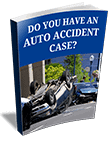Slip and Fall Personal Injury Cases
Interviewer: Can you please provide us with an overview of slip and fall cases?
Stephen Boutros: When you talk about a slip and fall case, it is somewhat of a generic, commonly used term. The appropriate legal term would be a premises liability case because slipping and falling on something, some dangerous condition or substance on the floor is one type of case within a bigger parameter.
Interviewer: Are there several kinds of premises liability cases, and slips and falls is just one kind, or does it mean the same thing?
Stephen Boutros: A slip and fall is within a premises liability case, but anytime someone is hurt on the premises of another, as a result of unreasonable dangerous condition on that premises, then that is a premises liability case.
Slip and Fall Cases, Depending on Where They Occur Are a Subset of Premises Liability Cases
It can be slip and fall in a grocery store. It can also be, with all these warehouse stores that had become so popular in country, we see falling merchandise cases. A dog bite case can be a premises liability case. Anytime you are on another person’s premises and are injured as a result of an unreasonable dangerous condition that would fall into the realm of a premises liability case.
Most Premises Liability Cases Originate inside a Business
The type of premises it is, determines what you have to prove to win that case. Most premises liability cases arise out of someone being injured on another’s business. If you go to a store, in a sense, the business owner has invited you to be there.
The legal term that defines a person when you are on someone’s business property is an invitee. They invite you there because they want to make money from your presence. They want you to buy something off their shelves.
Texas Law Mandates That Business Owners Must Remedy Unreasonably Dangerous Conditions
You can be at an arena, watching a basketball. You can be at a stadium, watching a football game. You can be at someone’s property working, if they are not your employer, you can be working so that they make money. If you are there for them to make money, then they owe a duty to you by Texas law. They must either properly warn you of any unreasonably dangerous conditions or to remedy unreasonably dangerous conditions.
Another example is an apartment complex. If you live in an apartment complex, they make money by you living there. You pay rent to them, so there are common areas that you don’t control, and they need to make those common areas safe.
They can do that by warning you. If there is a broken step or loose railing or something like that, they can warn you by putting up a warning sign saying, “This railing is broken. Don’t touch this railing. Go another way.” Or, they can remedy it, which means they can fix it.
If you are an invitee and you are on someone’s premises, and you are there to for them to make money off you being there, then they have to make that premises safe for, by warning you of unreasonably dangerous conditions or remedying the unreasonably dangerous conditions.

